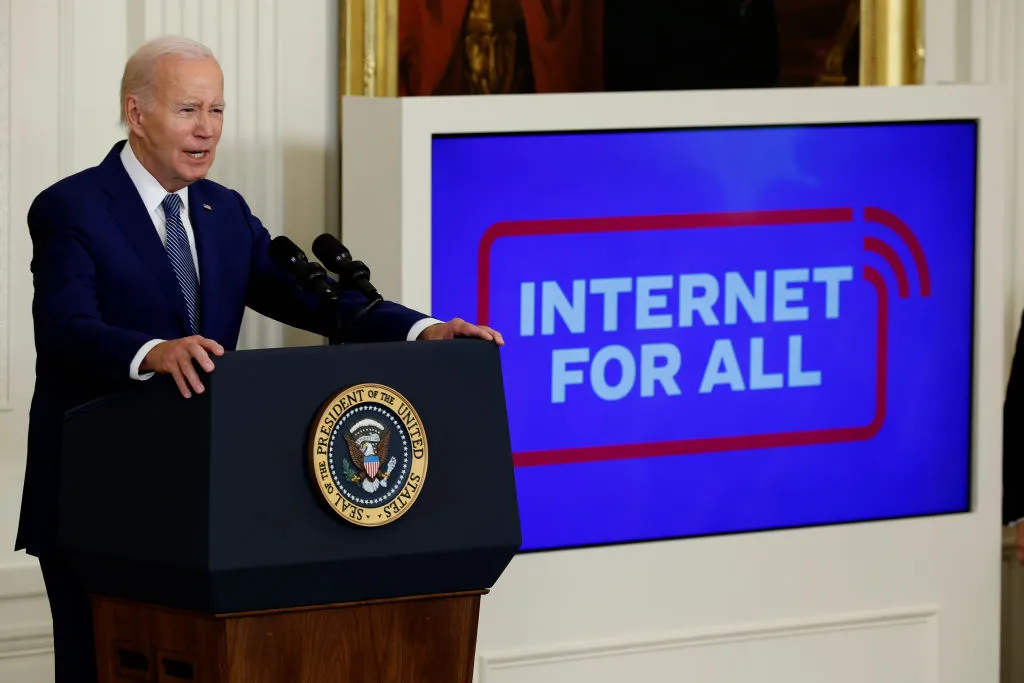
The White House has called on Congress to urgently extend the Affordable Connectivity Program (ACP), a critical initiative that enables low-income households to access affordable internet services. The program, a cornerstone of President Joe Biden’s agenda to ensure universal broadband access, faces imminent exhaustion of funds, with the potential to affect nearly 23 million Americans who rely on it to mitigate internet costs.
What is the Affordable Connectivity Program?
The ACP, instrumental in saving American households over $500 million monthly on internet bills, provides up to $30 per month towards internet services for eligible families, and up to $75 for those on qualifying Tribal lands, alongside a one-time discount for purchasing a digital device. As the program’s deadline looms, with new enrollments ceasing on February 7th, there’s a scramble to secure its continuation beyond its projected April shutdown.
This subsidy is not just a financial relief but a lifeline that connects individuals to remote work, a necessity that became glaringly apparent during the COVID-19 pandemic. The shift to remote and hybrid work models has maintained its momentum, underscoring the indispensable role of reliable broadband for employment, healthcare access, and participation in digital society.
However, the program’s cessation threatens to disrupt this connectivity, prompting a search for alternatives among affected remote workers and their employers. The issue of digital access intersects significantly with efforts to maintain organizational culture and equity in the work experience across diverse employment landscapes, highlighting the variable support provided by companies to facilitate remote work.
Bipartisan Efforts to Secure the Program’s Future
Amidst this uncertainty, bipartisan efforts in Congress seek to secure the program’s future, with proposed legislation aiming to infuse additional billions into the ACP. This push for extension enjoys widespread support, including from President Biden, who emphasizes internet access as a fundamental utility, akin to water, for every American household.
The Digital Divide: A Wider Problem?
The current crisis spotlights the broader challenge of digital equity in the U.S., where internet access is a divisive issue, cutting across political lines. The ACP’s bipartisan appeal, mirrored in its nearly equal distribution of service across Republican and Democratic districts, underscores the universal need for affordable broadband. Yet, despite its critical importance, the program’s longevity is jeopardized by fiscal concerns and political debates over government spending and the role of subsidies in ensuring internet access.
Telecommunications giants like Verizon, Comcast, and AT&T, among the 1,700 providers participating in the ACP, have rallied for its continuation, aware of the profound impact its cessation would have on the digital divide. Their advocacy reflects a broader consensus among public interest groups, state and local broadband officials, and the telecommunications industry about the ACP’s role in enabling digital inclusion.
President Biden’s commitment to broadband access aligns with his broader infrastructure and investment initiatives, likening the push for universal internet to historic efforts to electrify rural America. The ACP’s potential expiry not only risks immediate disconnection for millions but also threatens to undermine trust in broadband expansion efforts and erode the gains made in closing the digital divide.
A Call for Continued Investment
As the debate unfolds, the program’s fate hangs in balance, with the proposed $7 billion extension through the end of 2024 offering a temporary reprieve. Yet, opposition from some quarters, citing concerns over wasteful spending and the subsidization of already connected households, highlights the complexities of legislating digital equity.
This moment serves as a critical juncture in the U.S.’s digital evolution, with the ACP emblematic of the broader challenges and opportunities in ensuring equitable internet access. As the clock ticks towards the program’s funding deadline, the outcome of congressional deliberations will significantly impact America’s digital future, with implications for remote work, educational access, healthcare, and the socio-economic mobility of millions of Americans.
Featured Image courtesy of Chip Somodevilla/Getty Images
